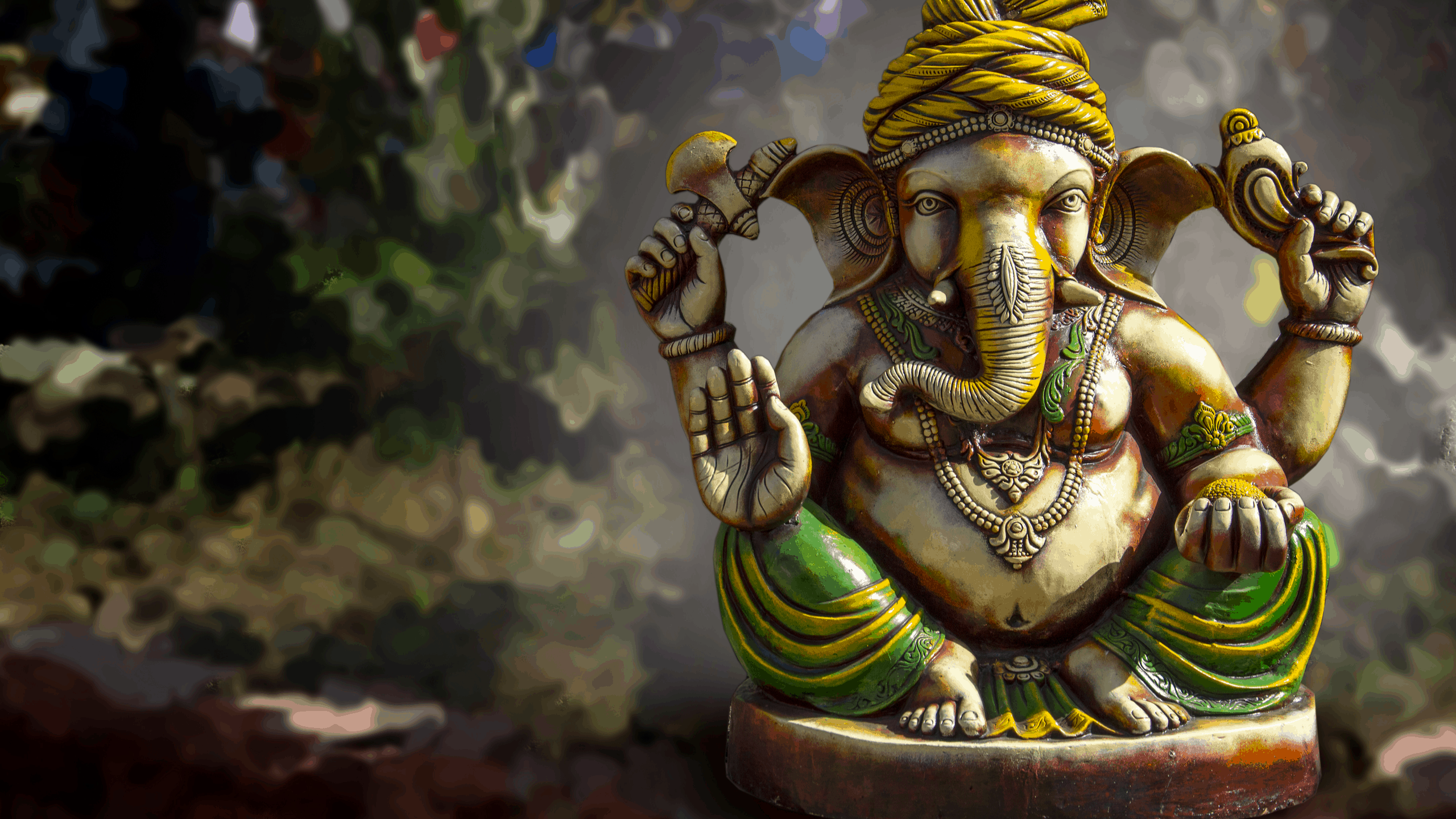Worldview Analysis and Testing Criteria
A worldview attempts to answer fundamental questions about human existence and experience, offering a picture or story of reality. Since every worldview makes objective claims about reality, it is possible to test these propositions, determining if they correspond with the real world. The following represents a methodological approach to conducting worldview analysis and the subsequent examination will utilize this criterion.1
1. Coherence Test: Is the worldview logically consistent? An acceptable worldview will avoid “self-stultification,” but will have components that hang together as a coherent whole.
2. Pragmatic Test: Does the worldview promote relevant, practical, and workable results? An acceptable worldview will be rational, feasible, and “externally livable.”
3. Verification Test: Can the central truth-claims of the worldview be verified or falsified? An acceptable worldview will make claims that can be tested and proven true or false.
4. Correspondence and Cumulative Tests: Does the worldview correspond with well-established, empirical facts, and does it correspond to a person’s experience in the world? Is the worldview supported by multiple lines of converging evidence, which together, add increasing support for its truth-claims, and extend the breadth of its explanatory power? An acceptable worldview will match with the observed world.
5. Explanatory Power and Scope: How well does the worldview explain the facts of reality (Power), and how wide is the range of its explanation (Scope)? An acceptable worldview will explain reality and offer a breadth of evidence in support of its conclusions.
6. Competitive Competence Test: Can the worldview successfully compete in the marketplace of ideas? An acceptable worldview will be able to respond to reasonable challenges and offer a critique of competing worldviews.
7. Predictive Test: Can the worldview anticipate future scientific discoveries successfully? An acceptable worldview can help humans make some accurate predictions of what their research into the macrocosm and microcosm will yield. It accommodates and incorporates emerging data.
8. Existential Test: Does the worldview address the internal needs of humanity? An acceptable worldview will account for the human need for meaning, purpose, and significance, and therefore be “internally livable.”
9. Balance Test: Is the worldview properly balanced between simplicity (reductive fallacy) and complexity (Ockham’s Razor)? All things being equal, the simplest, most economical, and yet comprehensive worldview is to be preferred.
Putting Hinduism to the Test
Numerous religions and philosophical systems—each with distinct nuances—receive foundation from Hindu traditions, precluding the possibility of producing a profile of Hinduism that applies universally. Accordingly, this article does not intend to present a comprehensive examination of the worldview or any particular doctrine. Rather, this article will use a standardized criterion (as detailed above) to test the fundamental beliefs of Hinduism, demonstrating Hinduism’s inability to provide a viable explanation of reality.
Hinduism Fails the Coherence Test
Just outlining the essential elements of the Hindu worldview will quickly unveil several logical inconsistencies.2 Embracing a form of religious pluralism, Hinduism maintains that all religions convey fundamental truths about Brahman. This concept is logically incoherent, as the major religions of the world are mutually exclusive and fundamentally contradict the core components of competing religious systems.3 For example, polytheistic religions avow the existence of multiple gods, while monotheistic religions recognize the existence of only one God. The law of noncontradiction prohibits the simultaneous existence of only one God and multiple gods, thus demonstrating the folly of affirming the truthfulness of both religious systems.
Similarly, Hinduism lacks any foundation for objective morality, and axiological beliefs vary among people groups and traditions. Since moral relativism encounters the same logical impediments as religious pluralism, the worldview again reaches a state of incoherence. However, relativism presents further challenges to Hinduism, eroding any basis for the doctrine of karma. Without an objective standard of morality, the karmic law becomes meaningless, and without karma, the principle of reincarnation deteriorates as well.
In addition to requiring objective guidelines of morality, these essential philosophies (karma and reincarnation) also necessitate a personal deity—something Hindu theology emphatically denies—to exercise judgment, administer punishment, and bequeath rewards. Lacking these fundamental elements, Hinduism’s central dogmas prove logically incoherent, precluding its acceptance as a reliable description of reality.
Inconsistencies also arise when considering the relationship between Brahman (i.e., the Hindu concept of God or Ultimate Reality) and ātman (i.e., our immaterial self or soul). As a pantheistic/panentheistic model, Hinduism affirms the undifferentiated nature (i.e., numerical identity) of Brahman and the material universe. However, relationships only exist between distinct entities, and the straightforward definition of Brahman and ātman establishes a plurality of objects or concepts.4 The doctrine of reincarnation multiplies this discrepancy exponentially, as the philosophy acknowledges a multitude of distinct persons/souls—each achieving different levels of enlightenment. Accordingly, philosopher Paul Copan concludes, “It seems that the distinctions presupposed by the doctrine of reincarnation undermine the notion of undifferentiated oneness of Reality—and vice versa.”5
Although this is not a comprehensive explanation of Hinduism’s rational failures, this examination provides ample evidence of its incoherence. Reflecting upon these considerations, philosopher Kenneth Samples concludes, “Pantheistic monism is fraught with incoherence and absurdity. Its distinctive features and doctrines (monism, atman, pantheism, [and] reincarnation) logically conflict with each other. As a worldview, it clearly fails the necessary coherence test.”6 The incoherence of Hinduism renders additional worldview testing unnecessary. Without logical consistency, it remains impossible for Hinduism to represent reality correctly, and a rational person will conclude the worldview is objectively false. Also, the lucidity of a worldview directly affects other areas of investigation. For example, since Hinduism is incoherent, it automatically fails the pragmatic test, as external livability becomes impossible. Nevertheless, the remainder of this article will demonstrate Hinduism’s failures in other facets of worldview examination, without drawing considerable attention to its incoherence.
Hinduism Fails the Pragmatic Test
Assertions that time is cyclical and the material universe is merely illusory, ultimately renders every aspect of life unreservedly meaningless. Yet, people do not live as though life is meaningless, and we find it impossible to view the suffering in the world as an illusion. Equating evil and good, right and wrong, just and unjust, is incomprehensible and we inherently refuse to accept injustice, corruption, and morally reprehensible actions (e.g., rape, murder, and child abuse) on relativistic terms—especially when we experience them ourselves. Consequently, it seems that our intuition and life experience contradict the axiological theories of Hinduism, and by momentarily considering the logical implications of such teachings, it becomes clear that the core beliefs of this worldview are not externally livable.
Lastly, Hinduism produces a religious, cultural, and societal caste system (inherent within the doctrines of karma and reincarnation) which deprives people of dignity and ultimately proves oppressive and fatalistic. The endurance of suffering serves as karmic retribution for moral failings of a previous life. Accordingly, a moral contradiction appears to arise when a person decides to help starving children in her area, since her compassionate act is essentially stifling the karmic process. Consistently maintaining the Hindu worldview requires her to view the distressed children with pitiless indifference, taking pleasure in the accomplishment of karmic justice. Besides, suffering is a mere illusion, and Hinduism exhorts its followers to reject false dualisms such as good and evil, right and wrong, just and unjust. This brief thought experiment demonstrates the futility of applying such views consistently and reinforces Hinduism’s failure of pragmatic testing.
Hinduism Fails the Correspondence Test
Many of Hinduism’s truth claims (e.g., the divinity of every human being and the illusory nature of the material world) are demonstrably counterintuitive, requiring adherents to abandon properly basic beliefs, empirical evidence, and rationality. Kenneth Samples masterfully addresses this point in commenting, “The assertion that human beings are divine and suffer from a severe case of metaphysical amnesia is completely foreign to virtually every person’s normal experience and awareness. Human beings are normally painfully aware of both their finitude and their imperfections.”7 Recognition of our personal existence and the reality of the material universe are available through introspection and empirical awareness, grounding them as first principles or self-evident truths. Hinduism presents no rationale for forsaking intuition, sense experience, and perspicacity to accept the antithesis.
Contemporary cosmology also presents challenges to the Hindu view that the material universe is an emanation of Brahman, as it specifies the universe is eternal and self-existent. However, the consensus within the scientific community acknowledges the universe’s beginning from a state of nothingness. Additionally, strong arguments (both deductive philosophical arguments and inductive scientific arguments) offer compelling reasons for denying the eternality of the universe.8 Consequently, it is clear that Hinduism fails the correspondence test, and by failing to correspond with well-established empirical facts, the worldview subsequently fails the cumulative, explanatory power and scope, competitive competence, and predictive tests.
Hinduism Fails in Explanatory Power and Scope
Brahman is an impersonal entity, without ontological distinction from the material universe. Logical incoherence aside, Hinduism is unable to explain the existence of personal agents (i.e., human beings) and cannot account for our capacities of reason, emotion, introspection, and volition. It seems that Hinduism cannot offer a “rational explanation for the fundamental human condition of personal conscious experience,” thereby lacking “any significant explanatory power when it comes to one of the most meaningful realities of human life.”9 Moreover, the worldview cannot offer an ontological account of ignorance (the root of humanity’s predicament), nor does it explain how ignorance could plague a divine, impersonal force. Incapable of explaining fundamental aspects of reality, the human condition, and essential elements of its own worldview, Hinduism disintegrates under the explanatory power and scope test.
Hinduism Fails the Existential Test
Considering Hinduism holistically, the worldview ultimately deprives life of all meaning and purpose, making psychological fitness and internal livability unobtainable. Denying the existence of evil, suffering, objective morality, and individual being, Hinduism fails to explicate the essential aspects of the human condition. By simultaneously exhorting followers to abandon personal desires, feelings, and attachments, the Hindu worldview becomes internally unlivable.
Conclusion
Hinduism unequivocally fails the coherence test, eliminating any rational basis for accepting the worldview as objectively true. The lucidity of a worldview directly affects other areas of investigation, and the incoherence of Hinduism’s essential doctrines eradicates the need for further worldview testing. Overlooking logical inconsistencies and submitting Hinduism to subsequent worldview analysis does not produce a more favorable result, as Hinduism categorically fails the pragmatic, correspondence, and explanatory power and scope tests. These results highlight the fundamental discordance between empirical facts and the truth claims of Hinduism—eroding any basis for the objective truthfulness of the worldview. While some may accept Hinduism based solely on psychological appeal/subjective preference, existential and pragmatic testing reveal the worldview is not externally or internally livable. Consequently, there is no rational reason for accepting Hinduism as an accurate depiction of reality.
- This philosophical approach for worldview testing is from Kenneth Richard Samples, A World of Difference: Putting Christian Truth-Claims to the Worldview Test (Michigan: Baker Books, 2007), 33-37; and Kenneth R. Samples, “Worldview Tests,” Reasons to Believe, June 25, 2001, http://www.reasons.org/articles/worldview-tests.
- See Worldview in Question: Outlining the Worldview of Hinduism, which provides the profile for this analysis.
- Religious pluralism is merely the application of relativism/subjectivism to the discipline of theology. See Not Relative: An Objective Rebuttal of Subjectivism, for further discussion.
- Analogously, describing the natural world as an illusion (māyā) institutes an indispensable demarcation between authentic and imaginary.
- Paul Copan, That’s Just Your Interpretation: Responding to Skeptics Who Challenge Your Faith (Grand Rapids, MI: Baker Books, 2001), 63.
- Kenneth Richard Samples, A World of Difference: Putting Christian Truth-Claims to the Worldview Test, 241.
- Ibid., 242.
- See Facing the Facts: The Kalām Cosmological Argument, for further discussion.
- Kenneth Richard Samples, A World of Difference: Putting Christian Truth-Claims to the Worldview Test, 242.




